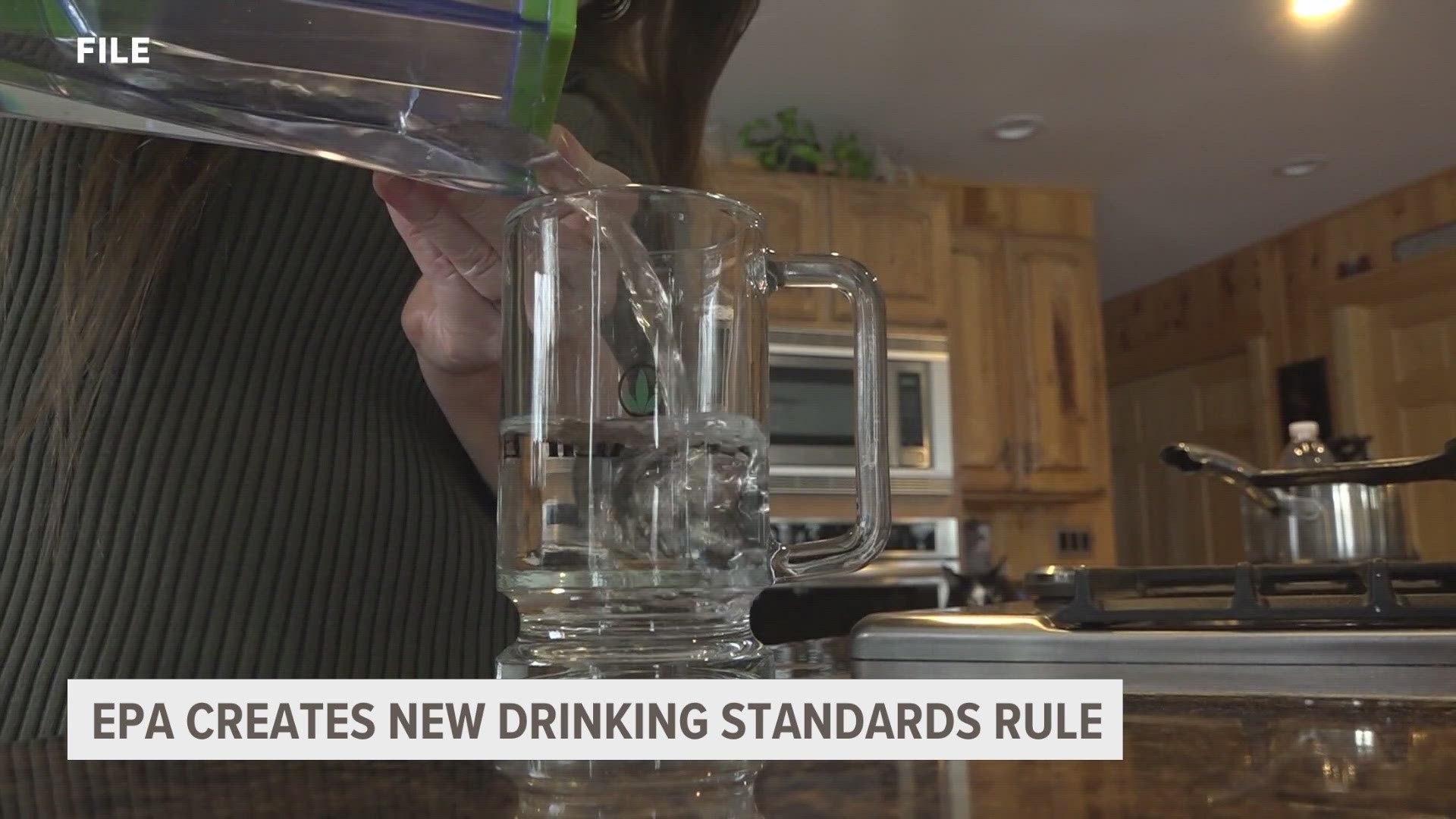PLAINFIELD CHARTER TOWNSHIP, Mich. — On Wednesday, the Environmental Protection Agency (EPA) announced the Biden-Harris Administration had finalized the country's first ever standard to regulate PFAS in drinking water.
"The final rule will reduce PFAS exposure for approximately 100 million people, prevent thousands of deaths, and reduce tens of thousands of serious illnesses," said the EPA in a press release.
Under the new regulations, all states will not be required to test for PFAS in drinking water and there will not be enforceable limits on six kinds of PFAS chemicals.
The new acceptable maximum for PFOA and PFOA, the two most hazardous PFAS, is now 4.0 parts per trillion.
"I learned about this in 2017. My husband had passed the year before of liver cancer, and it was the next year that I learned that my groundwater was contaminated with some of the highest rates of drinking water that have been seen," said Sandy Wynn-Stelt, co-chair of the Great Lakes PFAS Action Network, who lives across the street from the former Wolverine Worldwide dumpsite in Belmont where capping and waste relocation is now taking place.
Her groundwater has been contaminated with PFAS that had been dumped decades ago, and she has been in the fight for tougher regulations since 2017.
"It seems so... I don't know... weird to me, that this was never regulated," said Wynn-Stelt. "How did we have an Environmental Protection Agency that never protected the environment? It was only reacting."
PFAS is also known as "forever chemicals," and since the 1940s, they have been used in everyday items such as nonstick cookware, stain resistant clothing and firefighting foam for repelling oil, water and resisting heat. PFAS is also linked to causing cancer and other illnesses.
"It causes preeclampsia, it causes miscarriages, causes a variety of cancers, it causes all sorts of illnesses and problems especially in children," said Wynn-Stelt.
The EPA says the new regulations are expected to reduce PFAS exposure for 100 million people.
"In my district, farmers have lost their livelihood from PFAS contamination. People can't eat the fish out of the Huron River where they have fished for generations," said U.S. Rep. Elissa Slotkin of the 7th District of Michigan during a virtual briefing following the announcement. "It's a very live issue today. For the first time, we're going to have enforcement which will lead to lower PFAS levels around the country."
Michigan has had regulations in place for PFAS since 2020.
"Michigan has more contamination sites than most you because we're looking for it.," said U.S. Representative Debbie Dingle of the 6th District of Michigan. "We know what PFAS does, but the number of contamination sites that is growing nationwide should be alarming to all of us."
The EPA also says $1 billion is being made available to states through the Bipartisan Infrastructure Law to assist states in testing for treating PFAS and to help owners of private wells to address PFAS contamination.
For Wynn-Stelt, the news brings hope.
"I am a nobody, and yet, if you go to people that are decision makers, if you go to your state, and local and federal officials with a problem, and asking for specific things to be done over time, it can have quite an impact," said Wynn-Stelt.
►Make it easy to keep up to date with more stories like this. Download the 13 ON YOUR SIDE app now.
Have a news tip? Email news@13onyourside.com, visit our Facebook page or Twitter. Subscribe to our YouTube channel.
Watch 13 ON YOUR SIDE for free on Roku, Amazon Fire TV Stick, Apple TV and on your phone.

